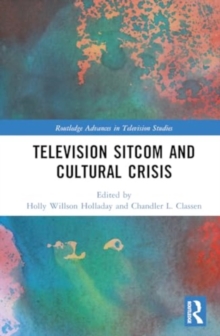
The Antihero in American Television Paperback / softback
by Margrethe Bruun Vaage
Part of the Routledge Advances in Television Studies series
Paperback / softback
Description
The antihero prevails in recent American drama television series.
Characters such as mobster kingpin Tony Soprano (The Sopranos), meth cook and gangster-in-the-making Walter White (Breaking Bad) and serial killer Dexter Morgan (Dexter) are not morally good, so how do these television series make us engage in these morally bad main characters? And what does this tell us about our moral psychological make-up, and more specifically, about the moral psychology of fiction?
Vaage argues that the fictional status of these series deactivates rational, deliberate moral evaluation, making the spectator rely on moral emotions and intuitions that are relatively easy to manipulate with narrative strategies.
Nevertheless, she also argues that these series regularly encourage reactivation of deliberate, moral evaluation.
In so doing, these fictional series can teach us something about ourselves as moral beings—what our moral intuitions and emotions are, and how these might differ from deliberate, moral evaluation.
Information
-
Available to Order - This title is available to order, with delivery expected within 2 weeks
- Format:Paperback / softback
- Pages:238 pages, 16 Halftones, black and white; 16 Illustrations, black and white
- Publisher:Taylor & Francis Ltd
- Publication Date:12/10/2017
- Category:
- ISBN:9781138575677
Other Formats
- PDF from £38.06
- EPUB from £38.06
- Hardback from £150.00
Information
-
Available to Order - This title is available to order, with delivery expected within 2 weeks
- Format:Paperback / softback
- Pages:238 pages, 16 Halftones, black and white; 16 Illustrations, black and white
- Publisher:Taylor & Francis Ltd
- Publication Date:12/10/2017
- Category:
- ISBN:9781138575677










